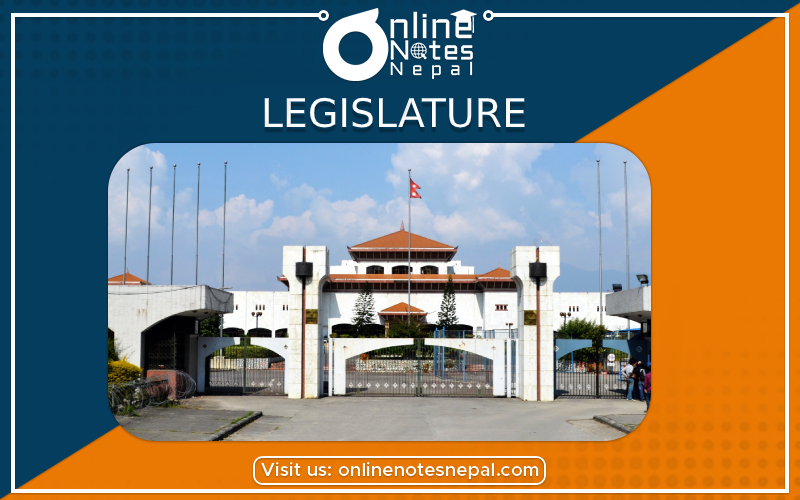Published by: Nuru
Published date: 09 Dec 2021

In this chapter, we discuss about the corruption, types, effects, and measures to prevent corruption. Grade 8 Social Studies, Reference Notes.
There are three important organs of the state.They are : Legislative, Executive and Judiciary. Legilative is composed of the people's representatives who are either directly or indirectly elected by the citizens of a country. It is formed to formulate laws of a country.
Legislature can be bicameral (having two houses: upper house and lower house) and unicameral (having only one house).Currently, there is the provision of the unicameral legislature in our country which is called the Legislature Parliament it will remain in effect until the general election shall be held for the new legilative under the new constitution. This parliament is the transformed form of the then Constituent Assembly whose task was to draft the constitution of Nepal and enact laws.
According to the Constitution of Kingdom of Nepal, 2047 B.S., there was bicameral legislative in which the House of Representatives and National Assembly formed the legislature. The Interim Constitution of Nepal, 2063 had the provision of the unicameral legislative. But, these days, there is new constituion in Nepal which was drafted by the Constituent Assembly. Now, Nepal has adopted the federal system of governance in the changed political scenario. The Constitution of Nepal, 2072 BS has the provison of the bicameral legilative at the central level and each state/ province shall have the unicameral state legislative.
Criteria to be a candidate for Federal legislature (parliament):
Functions of legislature are:
Checks over Executive are:
Checks over Judiciary
Importance of legislature are:
Legislature is necessary because it is the organ of the government that makes laws and passes them and also amends old laws. It is of greater importance. No democratic government can do its duty for the benefits of the people without law and cannot contribute to the development of the nation without law.
Legislative body of Nepal:
The Interim Constitution of 2063 has vested the power on Council of Ministers. Initially, the parliament had 330 members and it has now been replaced with 601-member Constituent Assembly in 2064 BS. During the 1st election, Maoist emerged as the greatest power in the country and Pushpa Kamal Dahal became the first Prime Minister of Republic Nepal. In the recently concluded 2nd election, Nepali Congress became the superpower whose chairman Sushil Koirala is the current Prime Minister of Nepal. Subash Chandra Nemwang from the UML became the speaker of the house for both the times.